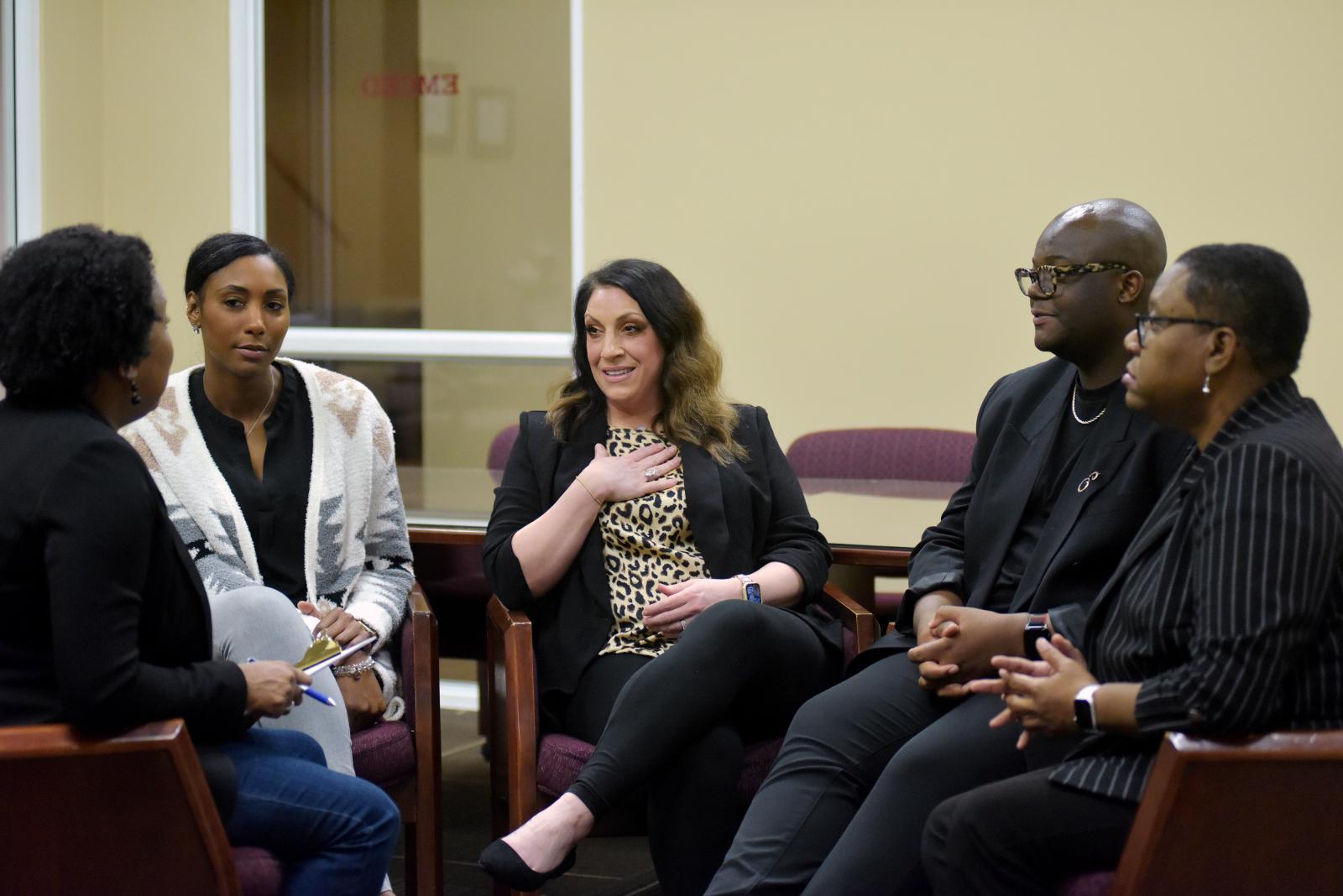Meridian community to benefit from new MSU Behavioral Health Care Clinic

Contact: Marianne Todd
MERIDIAN, Miss.—Delivering on its mission to provide access and opportunity to the state’s diverse populations, Mississippi State University-Meridian is opening a community behavioral health center to help meet local mental health care needs and graduating students to fill rural health care provider gaps statewide.
The MSU-Meridian Behavioral Health Center, scheduled to open late this summer in downtown Meridian, is coming to fruition at a crucial time, said Kim Hall, MSU associate dean of academic affairs who oversees MSU-Meridian’s Division of Education.
A $4.5 million grant from the Broadhead, Riley and Phil Hardin foundations is funding the clinic, the pinnacle effort of new mental health programs recently introduced on campus. This past year, the funding established Bachelor of Science in Educational Psychology and Educational Specialist in School Psychology degrees, along with a Doctor of Psychology in Combined Health Service Psychology.
“We also are currently in the process of proposing an addictions counseling program for the community that will enhance our clinical mental health and school counseling degree programs,” Hall said.
Following the COVID-19 pandemic, behavioral health emerged as a critical need nationwide, especially in rural areas with less health care access. In Meridian, clinics and other facilities struggle with swelling waiting lists and dwindling services and therapies, Hall said.
The pandemic and its lingering effects “thankfully have opened up a dialogue surrounding mental health,” Hall said. “It’s becoming more important and better understood where it’s historically been very taboo, very stigmatized.”
MSU-Meridian educators also are ensuring the new clinic will complement health care education, with the Master of Physician Assistant Studies program well underway, and faculty now anticipating IHL accreditation of a much-needed Master of Science in Nursing program in February.
Terry Dale Cruse, MSU-Meridian associate vice president and head of campus, said the opening of the community behavioral health clinic will bolster the number of health care providers and services in the 80 of 82 counties federally designated as Health Professional Shortage Areas by HRSA.
“Our programs position students to meet the most crucial health care needs of underserved populations in areas where research indicates the highest number of disparities exist and at a time when health care worker shortages are critically high,” Cruse said.
Rosanne Nunnery, associate clinical professor of counselor education, further explained the center’s multi-purpose mission as an educational facility for graduates to earn their practical, allowing for ample observation of clinical performance, and a needed mental health clinic where the professors themselves will provide client care.
Nunnery said the clinic also will fill a gap in helping school-aged children identified with depression or suicide ideation who have nowhere to turn for assessment and treatment.
“Someone has to be willing to take on severe mental health issues—rape, incest, adverse childhood trauma,” Nunnery said. “We will provide comprehensive services with assessment and dialectical behavioral therapy. I think a lot of agencies get scared of taking on such heavy issues, and even if they’re willing to, they’re booked up. School counselors cannot assess or treat. They can only refer. These students are being sent to the hospital for treatment and then released without continuing therapies. We need to be the interim.”
Hall agreed. “It’s a win-win. It’s designed where all our professors will work in the clinic and teach, and that way, our students are getting professors who are currently practicing.
Private insurance as well as Medicare and Medicaid will be accepted. For those with no insurance, there will be a sliding fee.
Negotiations for the rental agreement for the third floor of Regions Bank, at 2106 4th Street in downtown Meridian, are currently being finalized. A late summer opening is planned after renovations are completed.
Mississippi State University is taking care of what matters. MSU-Meridian is online at www.meridian.msstate.edu.